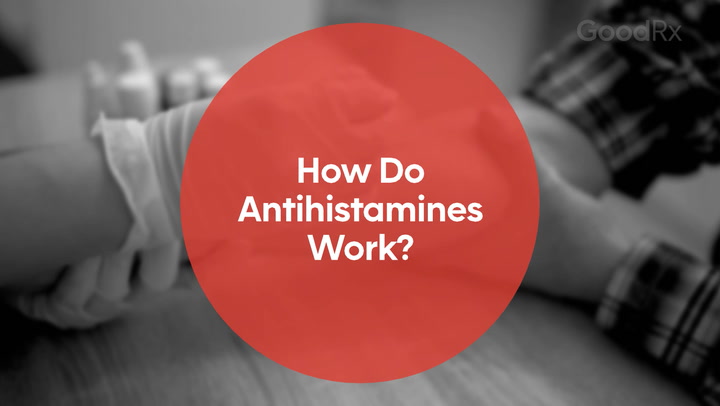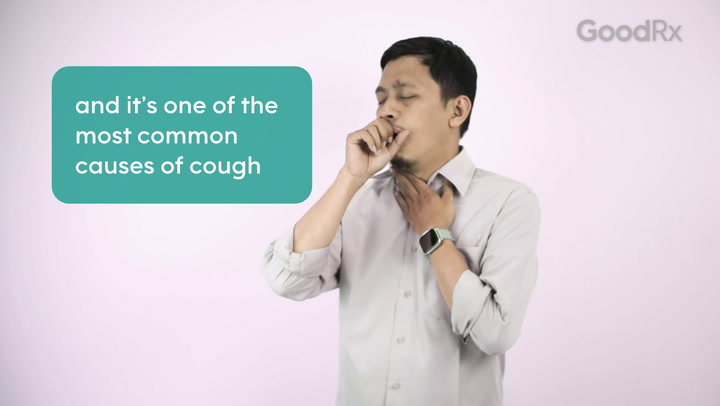
What to Know About Singulair (Montelukast), Plus 5 Expert Tips for Managing Side Effects
Key takeaways:
Singulair (montelukast) is an oral medication that treats allergies and asthma. It’s usually recommended as an alternate or add-on treatment if other medications aren’t sufficient.
Common Singulair side effects include upper respiratory infection, fever, and headache. Singulair also has a boxed warning for mental health-related side effects, but this risk is rare overall.
If you’re concerned about Singulair side effects, talk to a healthcare professional without delay. They can offer tips on how to manage them.
Access savings on related medications
Table of contents

Many asthma treatments come as inhalers, but Singulair (montelukast) stands out from the crowd. It’s an oral, prescription-only medication that’s helpful for treating asthma and allergies. It’s typically reserved for managing symptoms when other treatments aren’t enough.
Singulair, and generic montelukast, are beneficial for many people. Yet, potential side effects may factor into your decision when it comes to choosing this treatment for asthma or allergies.
If you’re new to Singulair, it's important to know what to expect and how to manage side effects you may encounter. Keeping certain Singulair tips in mind can put you in the driver’s seat of your health.
Singulair has several approves uses
Singulair can manage several health conditions. You may be taking it for one or more of these uses. It’s FDA approved to:
Treat and prevent asthma in adults and children ages 12 months and older
Prevent asthma symptoms that may happen with exercise, known as exercise-induced asthma, in adults and children ages 6 years and older
Treat seasonal allergies in people ages 2 years and older
Treat year-round allergies in people 6 months and older
Singulair’s benefits depend on what it’s treating
Singulair blocks the effects of chemicals in your body called leukotrienes. These chemicals promote inflammation and can force your airways to narrow and tighten. Breathing symptoms can worsen when there are more leukotrienes circulating in the body. Singulair helps stop leukotrienes from causing inflammation that leads to asthma and allergy symptoms.
However, the specific benefits you’ll feel depend on what you’re taking Singulair for.
Singulair for allergies
Singulair can lower symptoms of hay fever or allergic rhinitis, such as runny nose, sneezing, and congestion. Singulair is also less likely to make you sleepy than certain antihistamines, such as diphenhydramine (Benadryl) and cetirizine (Zyrtec).
However, Singulair isn’t typically the first-choice medication healthcare professionals (HCPs) recommend for allergies. Rare but serious mental health side effects have been linked to this medication. The medication’s labeling says that Singulair and generic montelukast should only be taken for allergies if other allergy medications don’t work. Some notable first-choice treatments for allergies are steroid nasal sprays, such as triamcinolone (Nasacort) or fluticasone (Flonase).
Singulair for asthma
Singulair helps open up the airways to make it easier to breathe with asthma. But, again, it’s considered an alternative treatment option. A first-choice treatment usually involves an inhaled steroid, such as budesonide (Pulmicort Flexhaler) or beclomethasone (Qvar RediHaler).
Most Singulair side effects are mild, but some are serious
Singulair’s side effects in adults and kids typically affect the respiratory system.
Here’s a list of common Singulair side effects:
Fever
Headache
Sore throat
Cough
Stomach pain
Diarrhea
Ear infection
Runny nose
Sinus infection
There is some good news. Most Singulair and montelukast side effects are mild and get better as your body gets used to the medication. But make sure to reach out to your prescriber if you’re experiencing any side effects that feel severe or won’t go away. They can help you navigate side effects so you can continue receiving the benefits of the medication.
However, Singulair can cause more serious side effects, such as joint and muscle pain or heart palpitations, but this is rare. Allergic reactions are also possible. If you notice any signs or symptoms of these issues, let your HCP know right away.
Some Singulair mental health-related side effects have been reported
Since 2020, Singulair and generic montelukast have had a FDA-implemented boxed warning. This is the FDA’s most serious medication warning. There have been some reports of serious behavior and mood-related changes, such as:
Agitation, aggression, or hostility
Attention problems
Restlessness
Nightmares
Depression
Anxiousness
Hallucinations
Memory problems
Sleepwalking
Trouble sleeping
Suicidal thoughts
These side effects could happen while taking Singulair or shortly after stopping it. They’re not common, but they should always be taken seriously. If you experience any of these side effects while taking Singulair, you should stop the medication and tell your HCP right away.
5 tips for managing and preventing Singulair side effects
Not everyone will experience Singulair or montelukast side effects. But if you do experience them, it’s good to know how to respond. Here are five quick tips for taking Singulair safely to lower your risk of side effects.
1. Follow your prescriber’s prescription instructions closely
Try to take Singulair exactly as prescribed. Don’t raise or lower your dose without your prescriber’s go-ahead. By lowering a dose, you risk not getting enough medication to treat your condition. But raising the dose too high means that your chances of experiencing side effects go up.
2. Take Singulair at the same time each day
Following a schedule with your Singulair prescription gives it the best chance for success.
If you’re taking Singulair for asthma, it’s recommended to take your medication at the same time every day, usually in the evening. This is because asthma symptoms often get worse at night and early in the morning. So you’re likely to get the most benefits by taking Singulair in the evening.
If you’re taking Singulair for allergic rhinitis, you can actually take it any time of day. Studies show Singulair is equally effective whether it’s taken in the morning or evening. Being consistent is key to having the medication work the way it should.
There is one exception. If you take Singulair for exercise-induced asthma, be sure to take it 2 hours before exercise. Taking it too early or too late could mean that the medication won’t give you enough protection by the time you’re ready for physical activity.
3. Do not double up if you miss a dose
If you forget to take your Singulair dose, skip the one you forgot and take the next dose at your regular time. Don’t double up on your Singulair dose. Doing so can raise your risk of side effects without any extra benefits.
4. Let your pharmacist know about other medications and supplements you’re taking
Several medications and supplements interact negatively with Singulair. Some medications — such as phenobarbital and rifampin (Rifadin) — may lower Singulair levels in your body. This may lead to a less effective treatment. On the other hand, medications such as gemfibrozil (Lopid) may raise Singulair levels and increase the risk of side effects.
It’s important to tell your pharmacist about all of the prescription and over-the-counter medications you’re taking. Be sure to mention supplements too. It’s especially helpful if you maintain and share an updated medication list with them so they can thoroughly check for interactions.
5. Tell a healthcare professional right away if you start to notice behavior or mood-related changes
As mentioned above, there’s a chance you may experience side effects that affect your mood or behavior while taking Singulair. If you notice these, you should stop your medication and let your HCP know as soon as possible. They’ll help you find a plan of action that works best for you.
For additional resources or to connect with mental health services in your area, call SAMHSA’s National Helpline at 1-800-662-4357. For immediate assistance, call the 988 Suicide & Crisis Lifeline at 988, or text HOME to 741-741 to reach the Crisis Text Line.
How to save on Singulair
There are ways to save on Singulair, which is available as both a brand-name and generic medication. GoodRx can help you save over 80% off the average retail price of the generic version. Generic montelukast at certain pharmacies is as low as $8.73 with a free GoodRx discount.
The bottom line
Singulair (montelukast) is FDA approved to treat health conditions such as allergies and asthma. But it’s usually not the first-choice medication for either condition due to potential side effects. This includes a boxed warning about mental health side effects. But the most common Singulair side effects are upper respiratory infections, fever, and headache. Talk with a healthcare professional if you’re concerned about Singulair side effects or have any questions about the medication.
Why trust our experts?



References
Adelsberg, J. V., et al. (2003). Montelukast improves symptoms of seasonal allergic rhinitis over a 4-week treatment period. Allergy.
Bisgaard, H., et al. (2009). Safety and tolerability of montelukast in placebo-controlled pediatric studies and their open-label extensions. Pediatric Pulmonology.
Global Initiative for Asthma. (2023). Global strategy for asthma management and prevention.
Jordan, A., et al. (2023). Psychiatric adverse effects of montelukast - A nationwide cohort study. The Journal of Allergy and Clinical Immunology: In Practice.
Jo-Watanabe, A., et al. (2019). The role of leukotrienes as potential therapeutic targets in allergic disorders. International Journal of Molecular Sciences.
Organon LLC. (2023). Singulair [package insert].
U.S. Food and Drug Administration. (2020). FDA requires boxed warning about serious mental health side effects for asthma and allergy drug montelukast (Singulair); advises restricting use for allergic rhinitis.
Wise, S. K., et al. (2023). International consensus statement on allergy and rhinology: Allergic rhinitis — 2023. International Forum of Allergy & Rhinology.
Was this page helpful?
Related Articles
Browse medications
View AllResearch prescriptions and over-the-counter medications from A to Z, compare drug prices, and start saving.
























